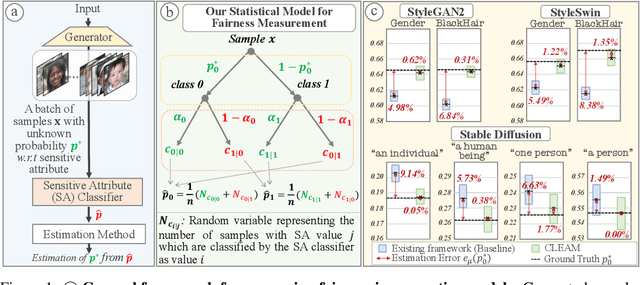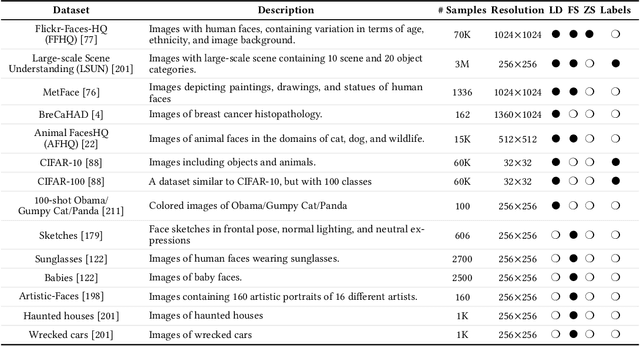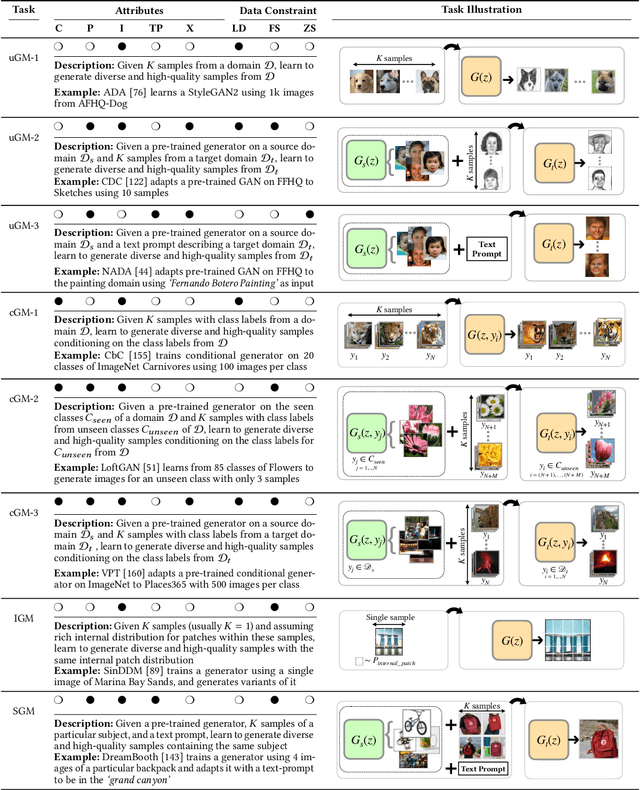Christopher T. H. Teo
On Measuring Fairness in Generative Models
Oct 30, 2023



Abstract:Recently, there has been increased interest in fair generative models. In this work, we conduct, for the first time, an in-depth study on fairness measurement, a critical component in gauging progress on fair generative models. We make three contributions. First, we conduct a study that reveals that the existing fairness measurement framework has considerable measurement errors, even when highly accurate sensitive attribute (SA) classifiers are used. These findings cast doubts on previously reported fairness improvements. Second, to address this issue, we propose CLassifier Error-Aware Measurement (CLEAM), a new framework which uses a statistical model to account for inaccuracies in SA classifiers. Our proposed CLEAM reduces measurement errors significantly, e.g., 4.98% $\rightarrow$ 0.62% for StyleGAN2 w.r.t. Gender. Additionally, CLEAM achieves this with minimal additional overhead. Third, we utilize CLEAM to measure fairness in important text-to-image generator and GANs, revealing considerable biases in these models that raise concerns about their applications. Code and more resources: https://sutd-visual-computing-group.github.io/CLEAM/.
A Survey on Generative Modeling with Limited Data, Few Shots, and Zero Shot
Jul 26, 2023



Abstract:In machine learning, generative modeling aims to learn to generate new data statistically similar to the training data distribution. In this paper, we survey learning generative models under limited data, few shots and zero shot, referred to as Generative Modeling under Data Constraint (GM-DC). This is an important topic when data acquisition is challenging, e.g. healthcare applications. We discuss background, challenges, and propose two taxonomies: one on GM-DC tasks and another on GM-DC approaches. Importantly, we study interactions between different GM-DC tasks and approaches. Furthermore, we highlight research gaps, research trends, and potential avenues for future exploration. Project website: https://gmdc-survey.github.io.
 Add to Chrome
Add to Chrome Add to Firefox
Add to Firefox Add to Edge
Add to Edge